

Given the flood of questions about our relocation to Portugal and being American expats, I’ve taken the plunge and launched a second blog titled ‘American Family in Portugal’. Join us as we share our journey and insights into expat life in this beautiful country!
Just two months after moving our family abroad to Portugal, we are finally starting to feel life calm down a bit. There is a lot to figure out when moving abroad, and we crammed a lot into a one-month timeframe. It was nearly a full-time job to figure out our new life, but we are beginning to see the light!
If you are considering moving yourself or your family to Portugal, specifically the Lisbon area, use these tips to plan your move and learn from our experience.
If you are just beginning the relocation process, check out my post on obtaining your D7 Visas to Portugal here. Unless you plan to complete the Golden Visa in Portugal, you will want to secure your visas before arriving.
If you are like us and don’t want to buy a home in Portugal right away, here are some things to consider:
Idealista was the best search engine for finding both homes for sale and for rent. Chris used the app and browser version.
That being said, you should understand that the Portuguese rarely respond to messages. We still find this to be the case as we live here and try to accomplish other tasks.
Chris messaged hundreds of listings and got maybe ten responses; he couldn’t get any until we were only a few days away from looking. Feel free to browse during your months of planning to get a price point and general idea, but beware that you may not get a response until you are in the country looking.
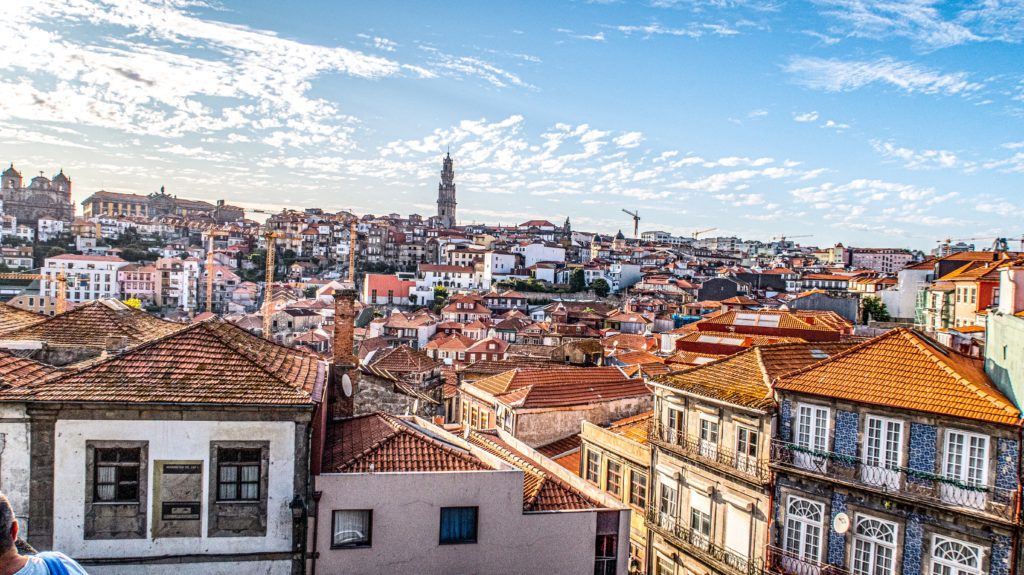
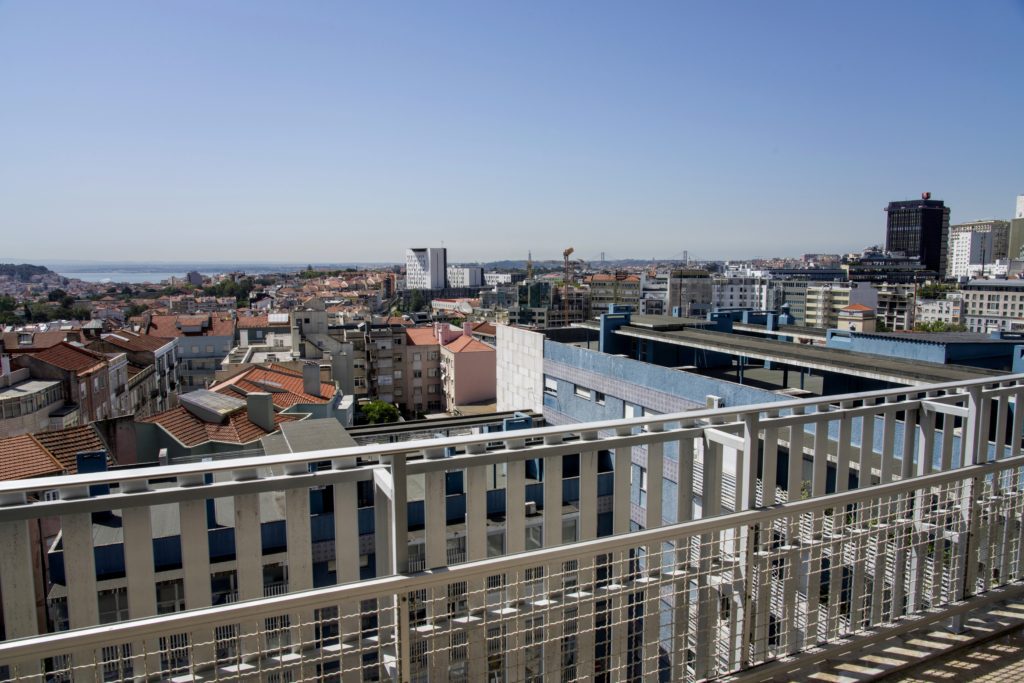
*Disclaimer: This post may contain affiliate links. Opinions shared are my own, and I only endorse products I support. By clicking on any of the links below, I may get a small commission if you purchase at absolutely no additional charge to you. I appreciate your support.*
Depending on your needs and family size, you will likely want to consider living in an apartment. I would guess that nearly 80% of the population in and around Lisbon lives in an apartment, including families. Detached, single-family homes are pretty hard to find and even harder to find when you are renting. Apartments are also much more affordable; we pay a hefty premium for a home.
Unlike in the US, the stress of living in an apartment with kids is probably pretty low. The Portuguese are patient, love kids, and will not be as annoyed by families. Again, it’s somewhat the norm.
Although harder to come by, it is possible to find great long-term rental homes in Portugal. You’ll first need to narrow down the area where you want to settle.
When we began our search for a home in Portugal, we initially focused on the area around Lisbon. We searched everywhere from the north, near Ericeira, to the south of Lisbon, across the bridge. We knew we would love Cascais and the surrounding areas; however, this area comes with a price increase.
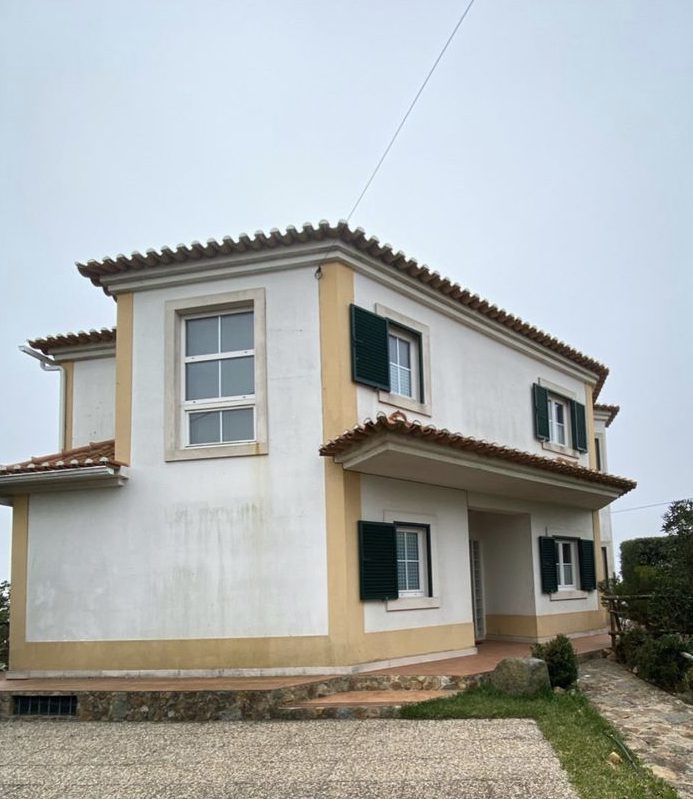
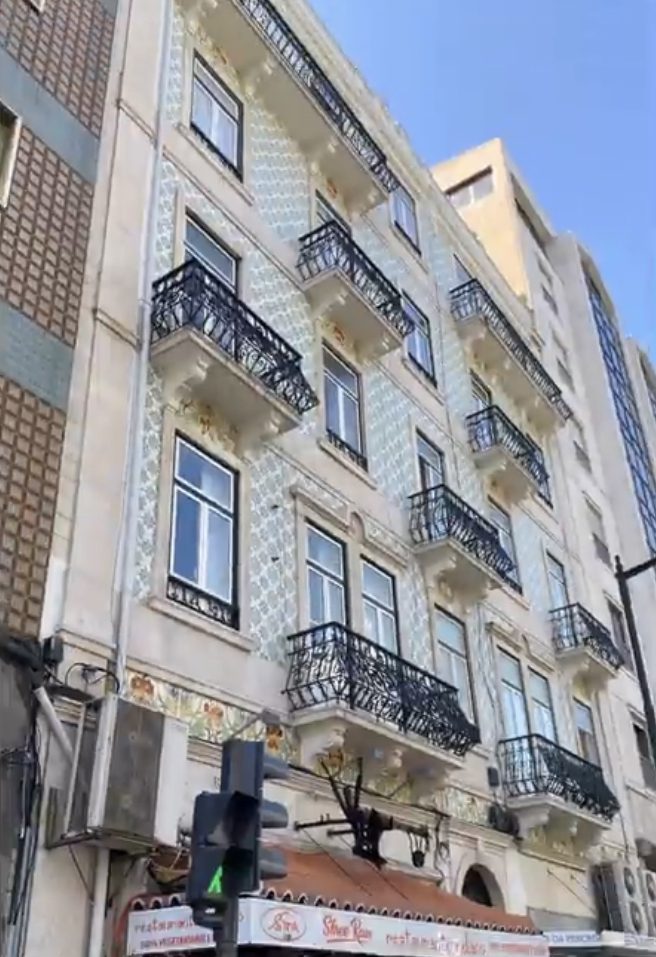

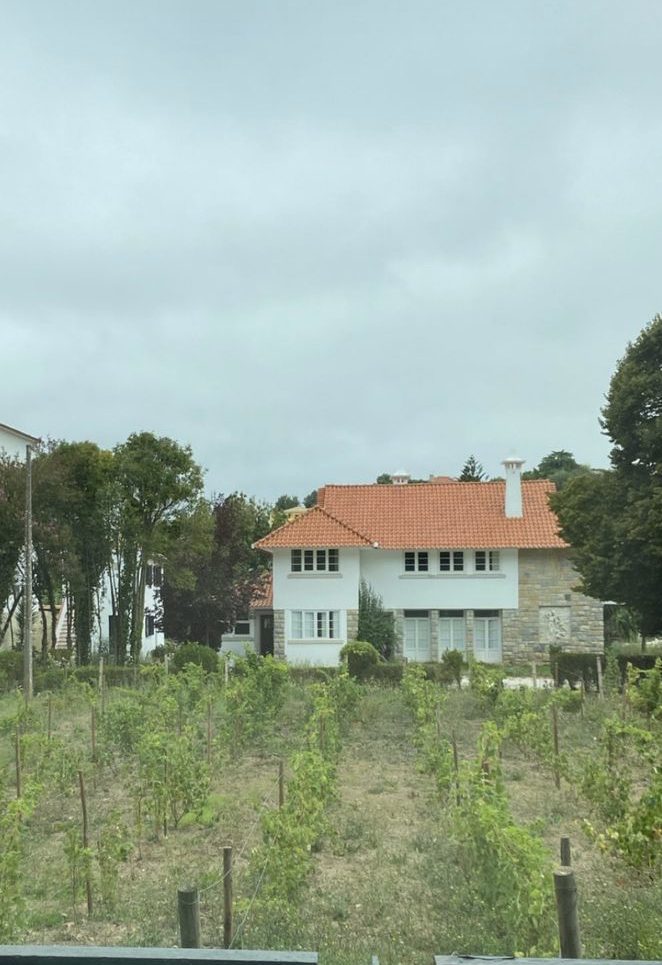
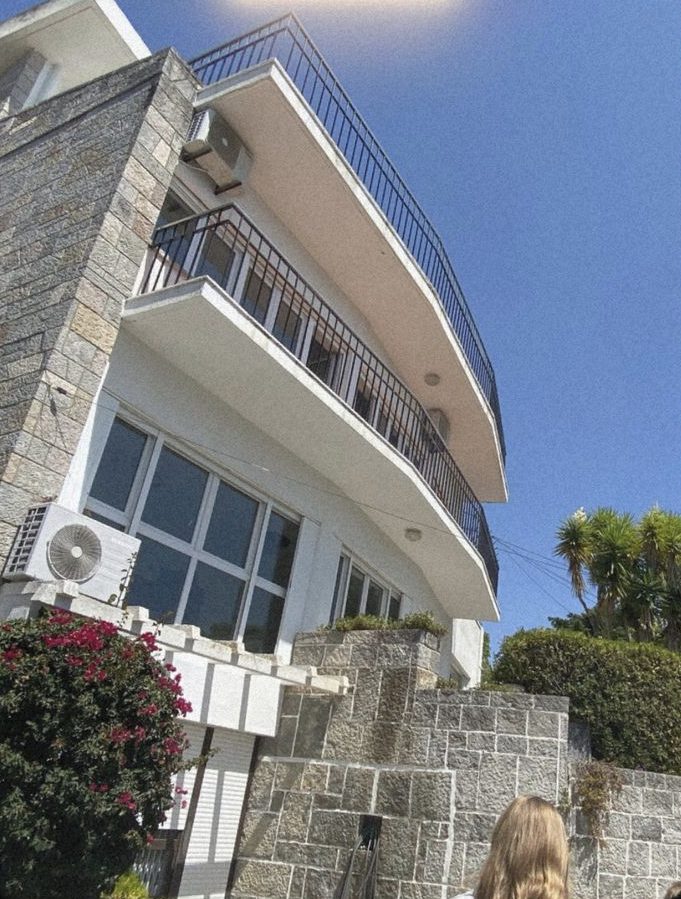
Upon arrival, we looked at close to eight homes and one downtown apartment. With five kids, the apartment simply didn’t work for us. We needed space for our boys to run around and stay active. (In fact, they are currently constructing their own zip-line in our new backyard.)
Likely you’ll find homes in the country that people rent out for a while. These are vacation homes and can be quite nice. They are also quite cheap, and if that lifestyle works for you, it could be a wonderful fit! However, they are further from the city and pretty remote.
It’s not uncommon for homes to have a guest house once you hit those higher price points. We found two homes with fantastic guest homes. These can serve as another source of income, depending on the deal you negotiate with your landlord.
According to our real estate agent, a rental lease in Portugal is set in place more to protect the renter than the landlord. We ended up signing a 5-year lease, but we were told we could basically get out of it any time we wanted. It basically guarantees that the rental is ours for 5 years if we choose.
We signed three copies of the lease and initialed each page. It took 2-3 weeks to finalize the lease after moving in. This is pretty typical Portuguese; No real rush here. 🙂
Thankfully, our lease was in English and Portuguese. We also completed some “registration” paperwork with our real estate agent.
This lease was also needed to set up our utilities, which I’ll cover more below.
We were asked to pay one month’s rent as a deposit and three months’ rent upfront before moving in. I don’t know if this is standard, but it equated to quite the bank transfer!
Bank transfers are the way to go in Europe. They are extremely common, even when buying from a store at times. We went into a physical bank for this large transfer, but I can also transfer from my mobile phone. After the three months are up, I plan to just transfer the funds on the first of the month.
We set up our Portuguese bank account with our immigration lawyer before we arrived in Portugal. He said this was needed for our visa.
Imagine giving all your personal info and transferring a large sum of money to an account in a foreign country… it was scary! During this process, I told Chris we would either be ahead of the game upon arrival, or we’d lose our identities.
Thankfully, it put us way ahead. We were given a choice of two banks that commonly set up accounts with foreigners. We went with Novo Banco and have been pleased so far. I’ve also heard good things about BPI as another banking option.
We set up the account overseas and received our temporary debit cards in the US. However, I forgot them (whoops), so we went into a branch in Lisbon and got temporary cards on the spot. Pretty cool! They also said they would mail the new cards to us within a month.
Proving our new address has been the biggest obstacle so far. Due to the delay in signing a contract and setting up utilities, we didn’t get a postmarked piece of mail with our new address until after the 30-day deadline.
You cannot use any of the following to prove your address:
You must have a postmarked piece of mail with your new address.
As mentioned above, bank transfers are the way to go throughout Europe, making mobile banking a breeze.
I visited a local branch and got help setting up mobile banking. There were A LOT of steps, and I am super glad I had someone to help me through them. Most of the process was in Portuguese, several security items were difficult, and my overall lack of understanding meant I really needed the help.
However, now that I have the app on my phone, making bank transfers is very simple. I only need a name, IBAN, or account number in Portugal to make a quick transfer.
Credit cards are not a big thing in Portugal; almost everyone uses a debit card. In fact, most retail locations have two credit card machines: one will be for “multibanco” (which are local debit cards), and the other will accept international cards like Visa and MasterCard.
However, some retailers don’t even have international machines, and Visa cards will be declined. For these scenarios, we use our Novo Banco card or cash.
Cash isn’t very prevalent, but it is more so than in the USA. It’s always good to carry some cash and coins with you. The place I’ve used these the most is for parking as many parking machines only take Euro coins.
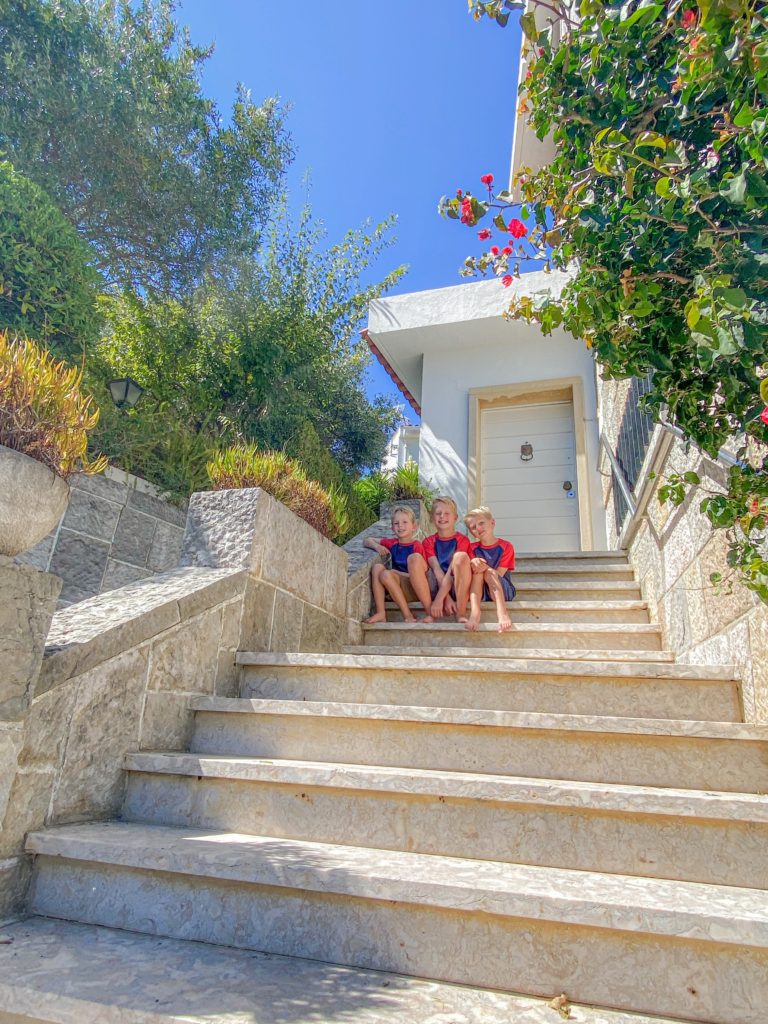
*Keep in mind our experience is just for the Lisbon area.
Our home utilities include a water and electric bill. Most homes, including ours, also have a gas tank that you refill.
According to my landlord, setting up utilities in your name can be quite a pain. You’ll need your lease agreement, your NIF (see my visa post for more details), a local phone number, your Passport or ID, your landlord, and possibly more.
Because it is so difficult to change, our landlord kept her name on the water bill with the city we live in. I added my Portuguese bank account as the payment method, and the bill will be automatically deducted from there. While convenient, remember that you cannot use this to prove your address.
We made these adjustments in a local city building. You can search online for the nearest one in your city.
Our water bill has been around 100-200 Euro a month. However, we are in a large home, so it’ll likely be less.
Thankfully, we got the electric bill set up under my name. It did take over an hour to complete, but I now have the account in my name. The electric company also offers many extras, such as services on your appliances and discounts at grocery stores. We are with EDP, which I believe is the only option in our area. It is located in a retail store location.
Our landlord told us to expect about 200-300 Euro per month, depending on consumption. We work from home with several electronic devices at all times, so ours might be a bit higher.
For our gas, we have two large tanks. Ideally, both are full, and you simply switch over to the other tank when the first empties. You really only know that the tank is empty when you run out of hot water and gas on the stove. When the tank is empty, you simply call the company for a full one, which comes within a day.
For a new tank, I spent about 80 euros. These typically last 1-6 months, again depending on consumption.
Your internet will likely be combined with your new mobile phone. Getting a Portuguese mobile number is crucial. It goes on almost every form you fill out, and people will not contact your US number.
We went with MEO as our provider at the recommendation of our landlord. She was nice enough to go to the store with us, help us with our new address, and even meet with the installer to help set up the internet in the home.
The Portuguese people are incredibly nice, and you can always count on someone willing to help!
We signed up for four cell phone lines and the maximum internet we could. Our bill for all of that is around 175 Euro per month. The service representative helping us kept saying how expensive it was, but we thought it was a steal at a fraction of the US mobile bill we are currently paying. I think most plans are probably under 100 euros a month.
So far, our internet speed has been decent. We’ve had to buy two different routers as we didn’t like the first one, but we are doing OK with both working online all the time.
One of the most difficult parts of our move so far has been the challenge of knowing where to buy things. While Amazon is available in Lisbon (yay!!), it is certainly not a 2-day Prime. Everything we’ve ordered has taken 2-3 weeks to clear customs, and we have to provide a lot of information to get it.
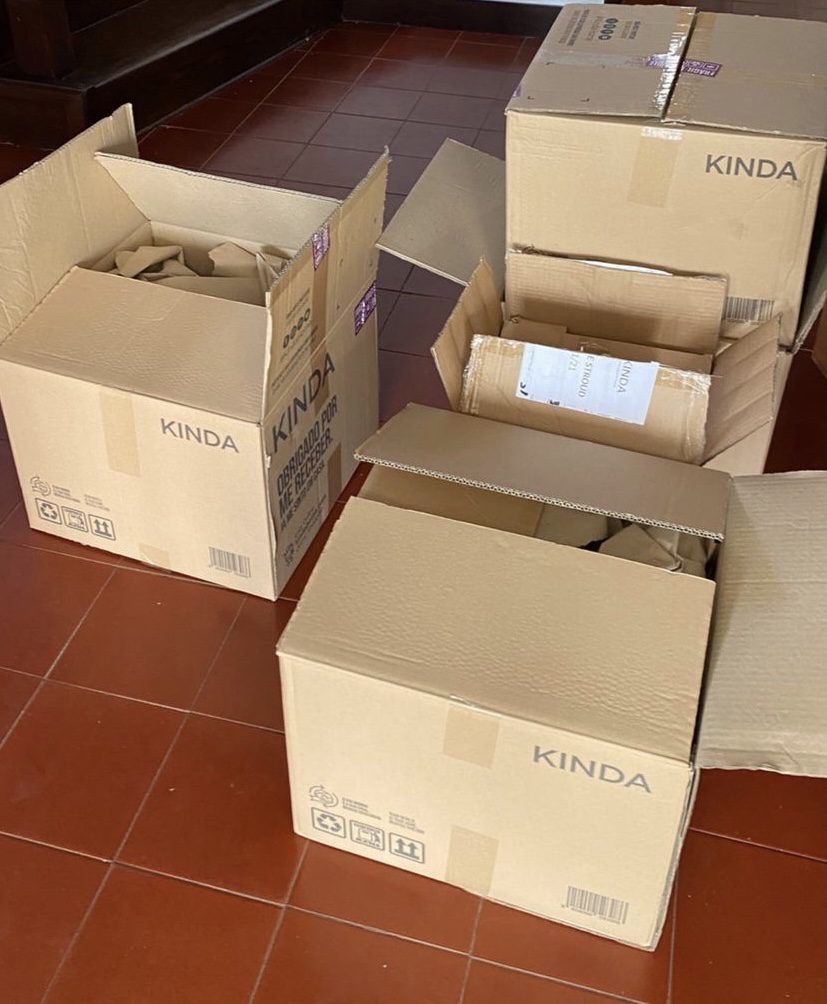
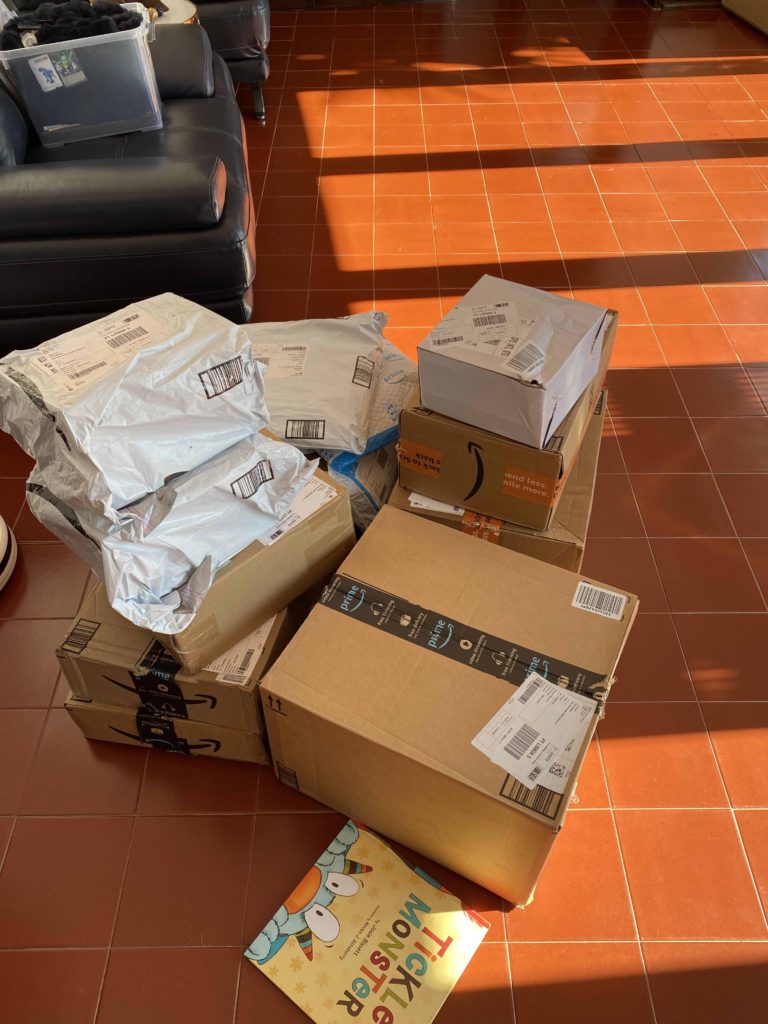
Speaking of Amazon, beware that anything you bring into Portugal comes with a customs fee. When we order on Amazon, we pay a “customs deposit.” For example, we purchased a standing desk, which we could not find anywhere else we looked, and paid around $130 for just customs. This does add up. If the customs fee is less than we were charged, Amazon does give a small refund after delivery.
We are also required to be home for the deliveries. There are no leaving packages on the doorstep like in the US. The driver has to hand it directly to us, and often, we need to show an email or code to obtain the delivery.
Other online shopping has been difficult as well. Often, the sites only accept a Portuguese debit card, and our current temporary card has restrictions on it. We really haven’t been very successful with online shopping so far.
This means LOTS of trips to the store! We are furnishing a large, 5-bedroom home and it’s a lot to buy.
IKEA has proven the most helpful store for us so far. While it isn’t the best quality, it’s actually pretty good here in Europe. The other stores we’ve found tend to be of similar quality unless they are premium prices.
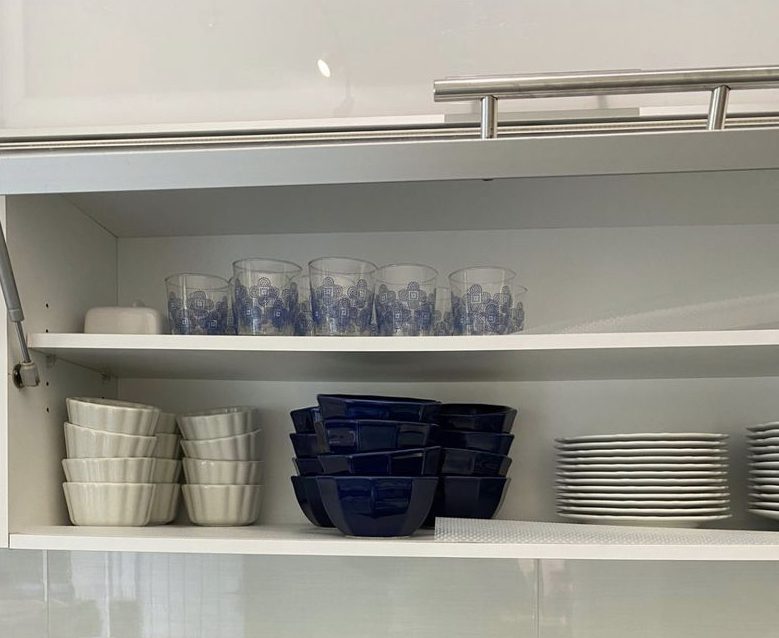

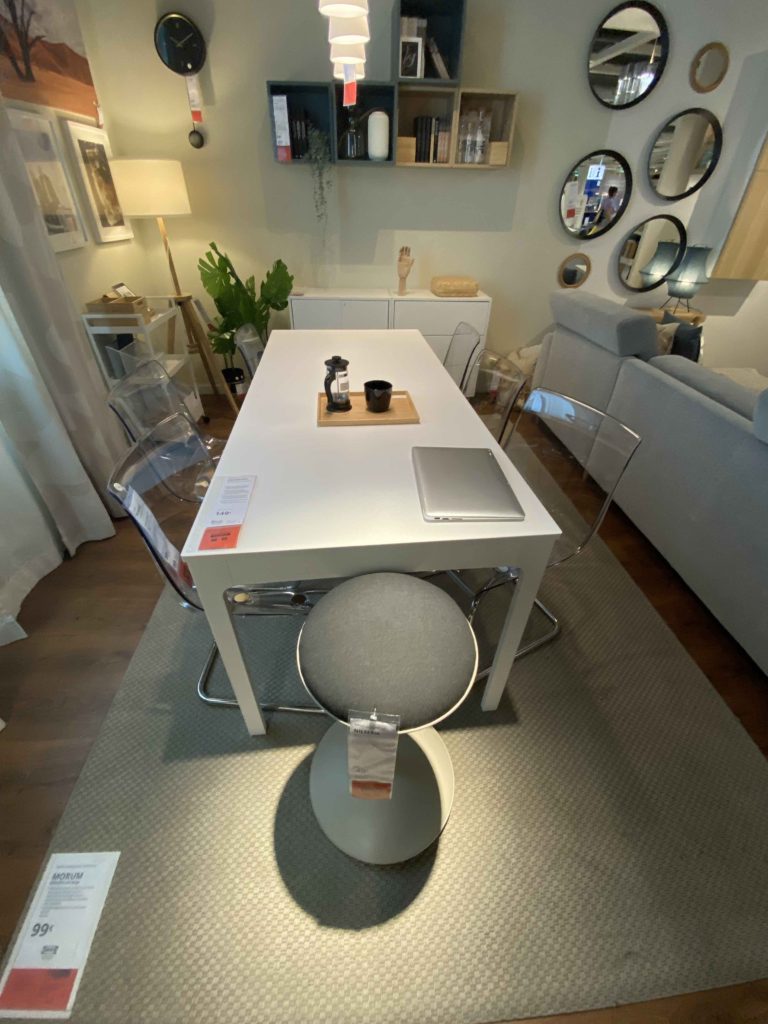
You can place a large delivery order at the IKEA store but plan on a few hours to do so. You’ll need to know what you want from each section of the store, then find the little customer service desk in that section and order what you want. They add to your bill at each station, but each department has to do its own “ticket” of sorts. Each one will potentially change the delivery date as well.
It took about a week to get our large IKEA order, and then a truck broke down, so we only got half of it.
Anyone who has purchased from IKEA knows that the assembly can take hours. They offer an option on their site to use a third party called Task Rabbit. You put in a request with the IKEA items (not names, but types, like “bookcase”), and you’ll receive a quote for the assembly price. You are connected with a worker and schedule an assembly time directly with them.
I would 100% recommend getting help with the assembly. The young man who came to assemble all of our IKEA furniture over two days was amazingly fast!! He assembled the desk and tables 15% of the time it would have taken us. He also helped assemble two desks we had ordered from Amazon as well. He did this for a living and was lightning fast!!
He did leave the packaging there for us to dispose of, which is fine, but overall was so worth it.
Task Rabbit can also be used for many other tasks around your home and is worth a look.
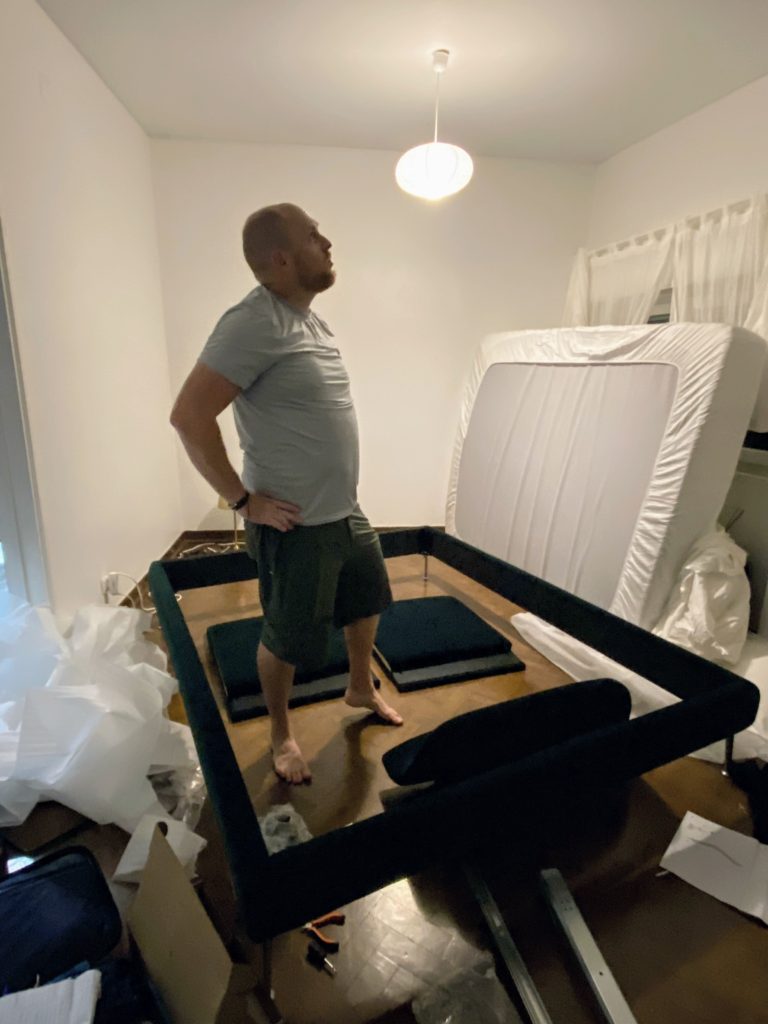
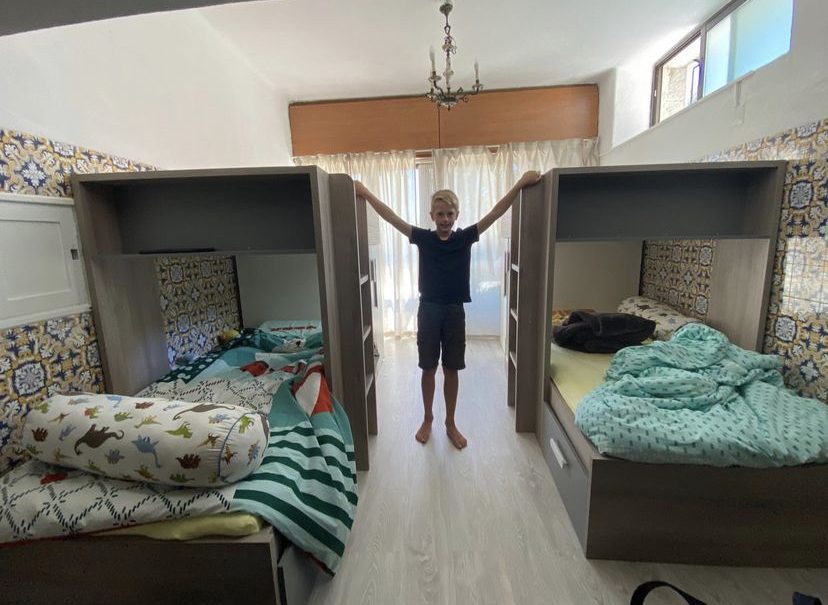
Conforama is another budget to mid-level, large furniture chain. The quality is not much better than IKEA, but the selection is a bit different. We shopped here for bunk beds and sofas for the kids.
They have appliances, outdoor items, mattresses, beds, TVs, etc. There are also many locations, which you can find here.
Delivery took 1-2 weeks. Thankfully, they assemble in your home and get everything set up.
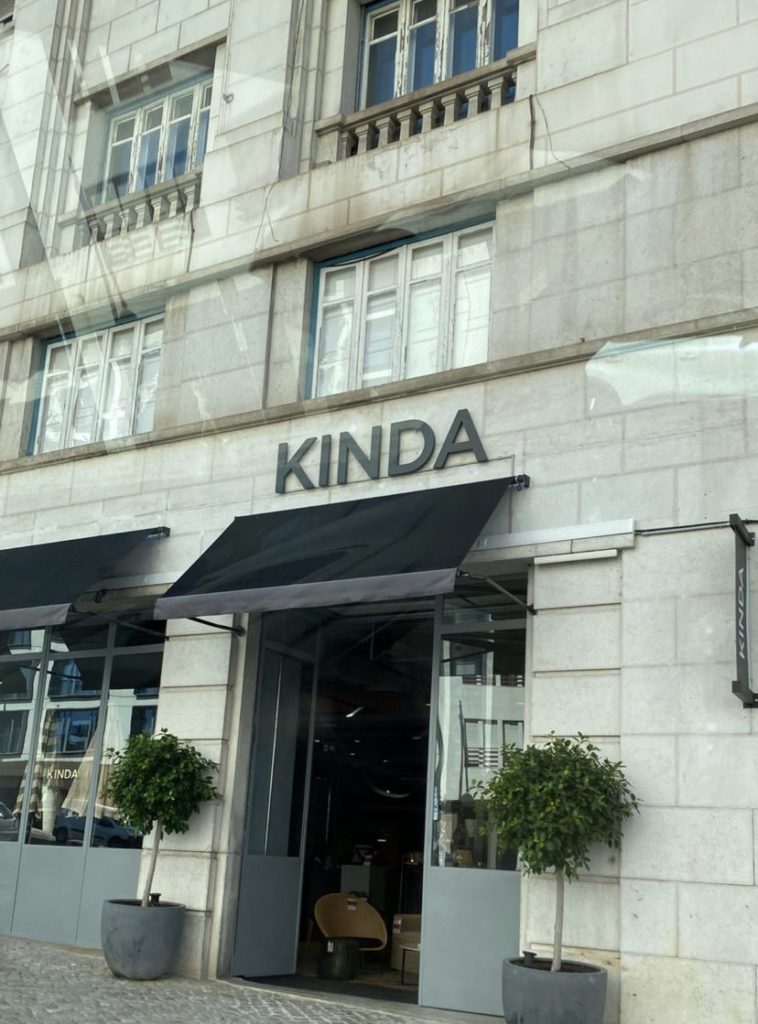
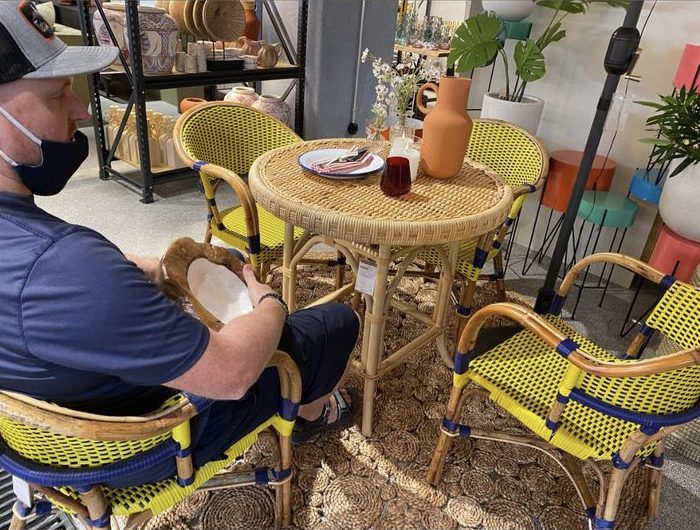
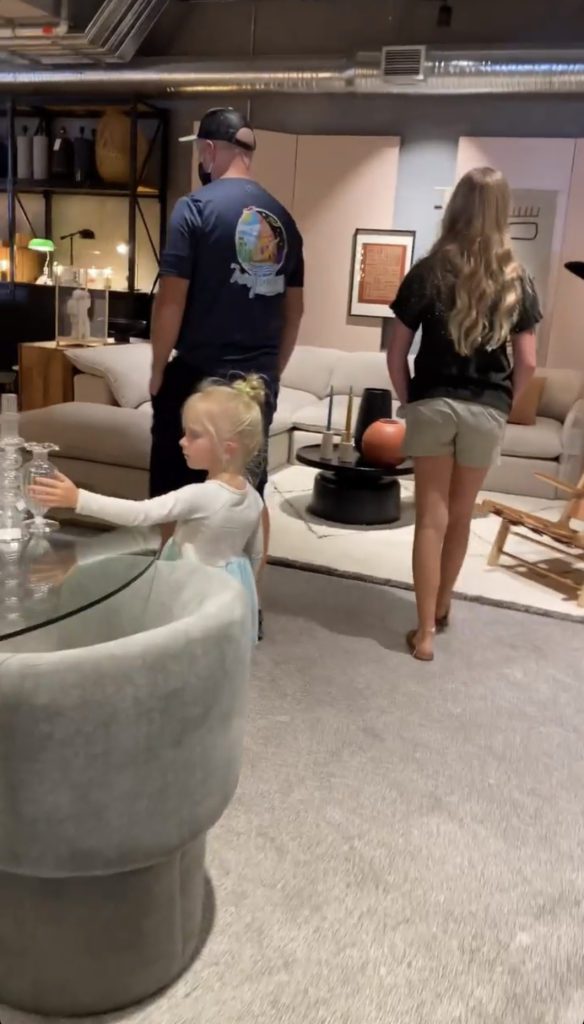
For some nicer items, like rugs, lighting, and our dining table, we went to Kinda. We loved their simplistic, clean vibe, but it was more expensive.
We got some beautiful dishes, kitchenware, chairs, etc., here. I’d recommend taking a look. I think they also have a design studio if you are looking for that.
We haven’t found anything else more luxurious (nor do we want to pay for it) at this point, but Portugal is known for woodworking, and I know you can find some lovely stuff. I think antique stores would be a great option as well.
For most of our tech and school books, we’ve been going to Fnac in our closest mall. Think of this as a mini Best Buy and a bookstore wrapped into one.
However, we just discovered a new store: Worten. I’d opt to shop here for tech, appliances, and large electronics in the future. Their selection is much better. We just bought a foosball table that the kids are excited about here.
The big grocery store players in Lisbon are:
So far, we’ve done almost all our shopping at Continente. It’s in the mall close to our house, making it easy to run several errands at once.
Grocery stores in Portugal are huge and often come with other stores as well, like dry cleaners, locksmiths, nail salons, etc. When we stayed in the more rural northern parts of Portugal, the Continente was a relief. It offers a lot.
All stores have begun charging for bags, so invest in some reusable ones and bring them with you.
I can only share our experience so far, but we quickly learned a few things about the schools in Portugal:
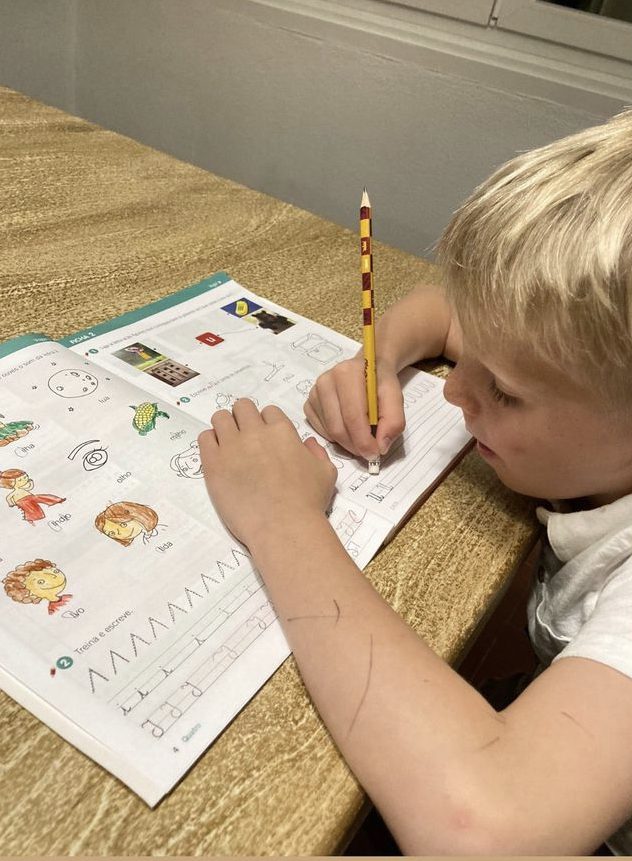
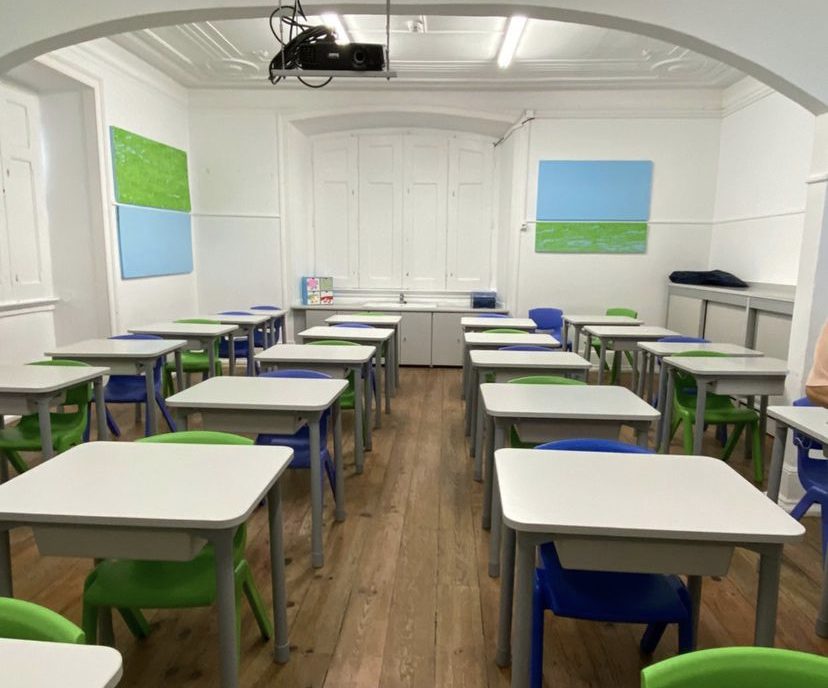
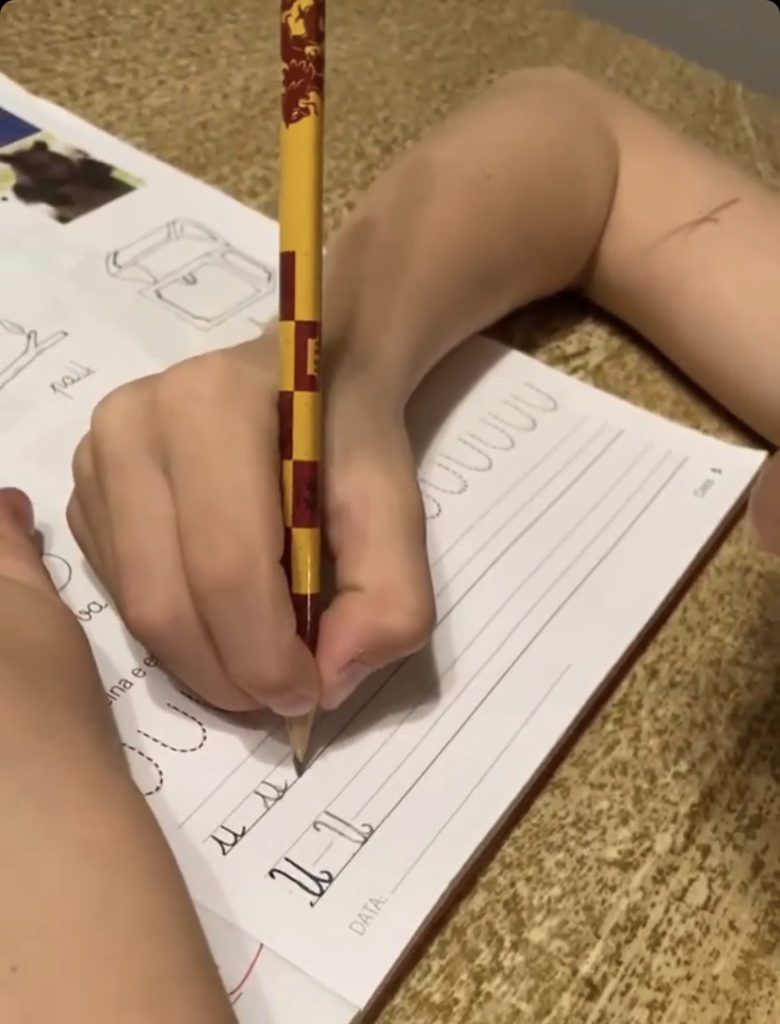
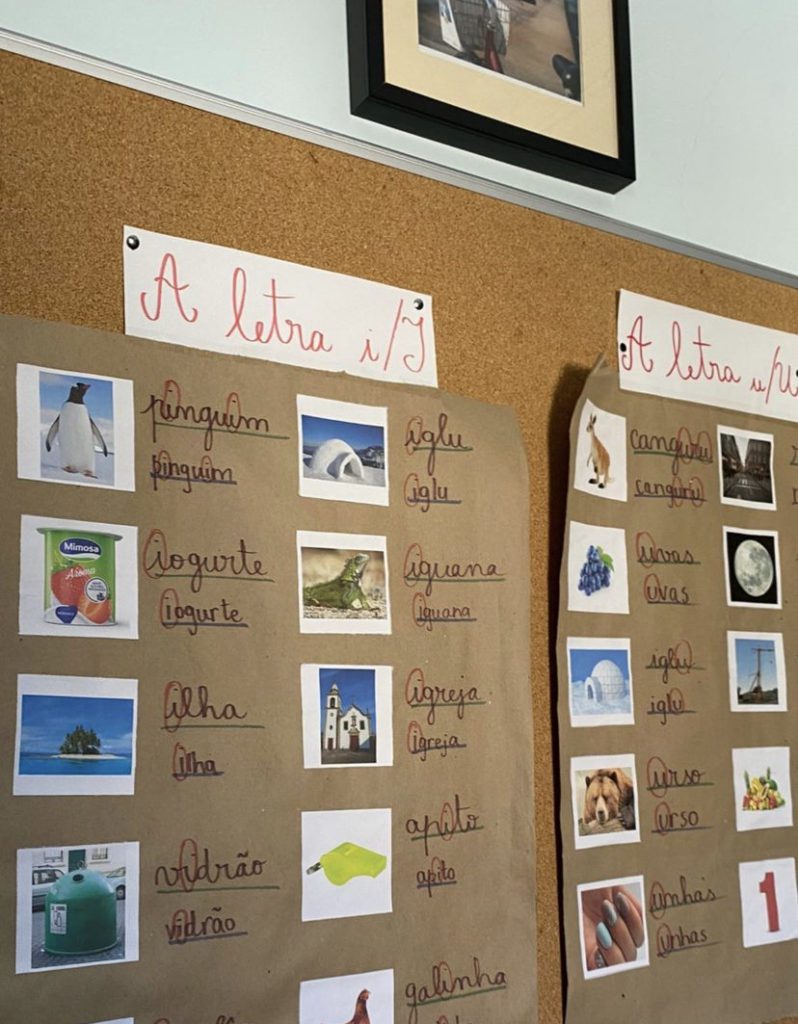
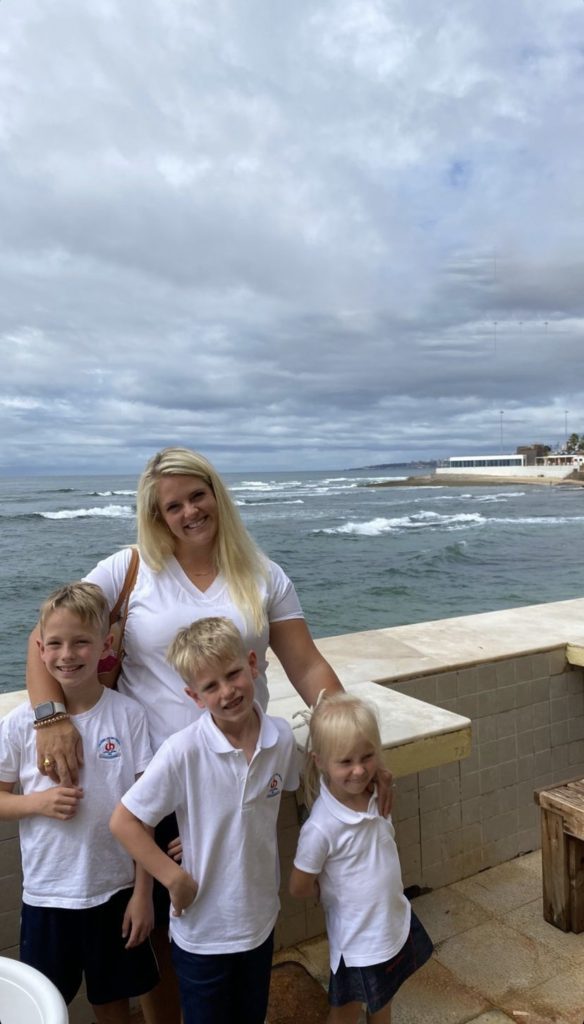


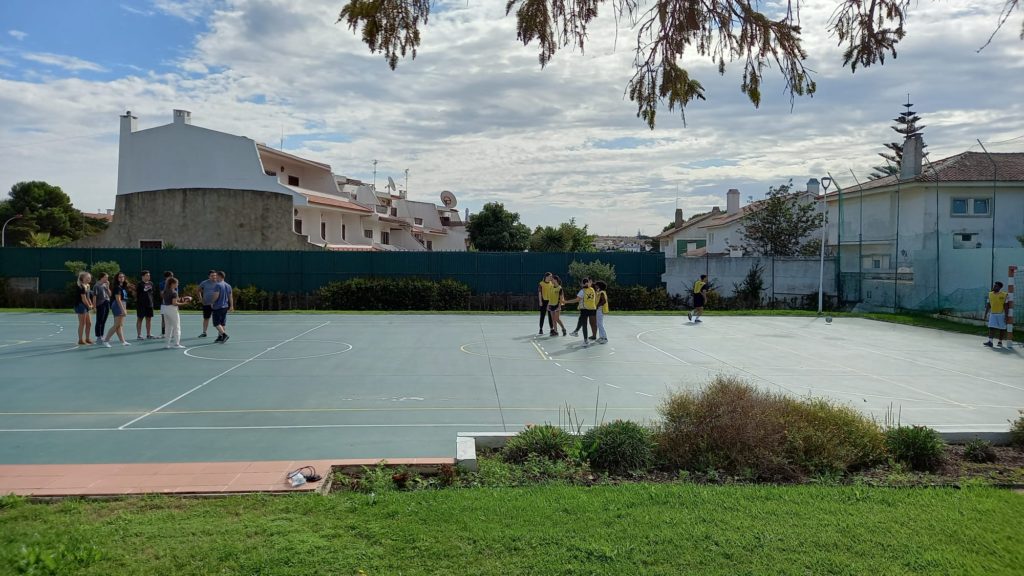
We are less than a month into school, but the language piece has proven difficult and easy so far. Most people in Lisbon speak little English, if not fluent. All of the kids’ teachers speak at least some, and most translate for the kids.

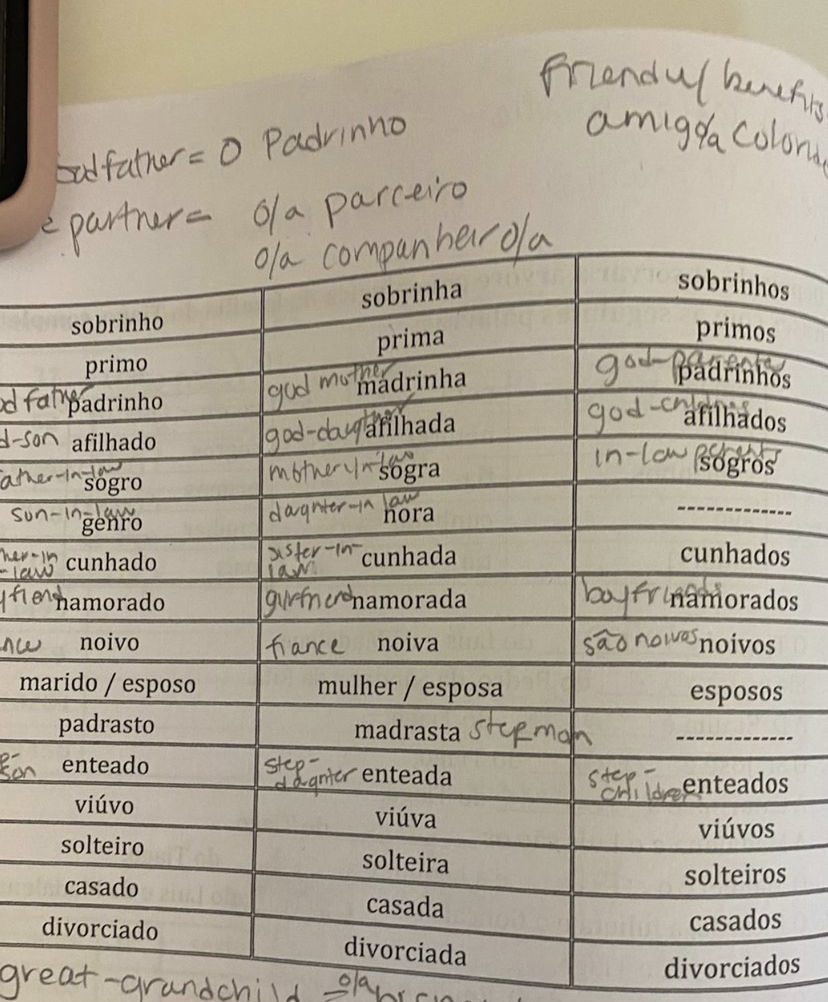
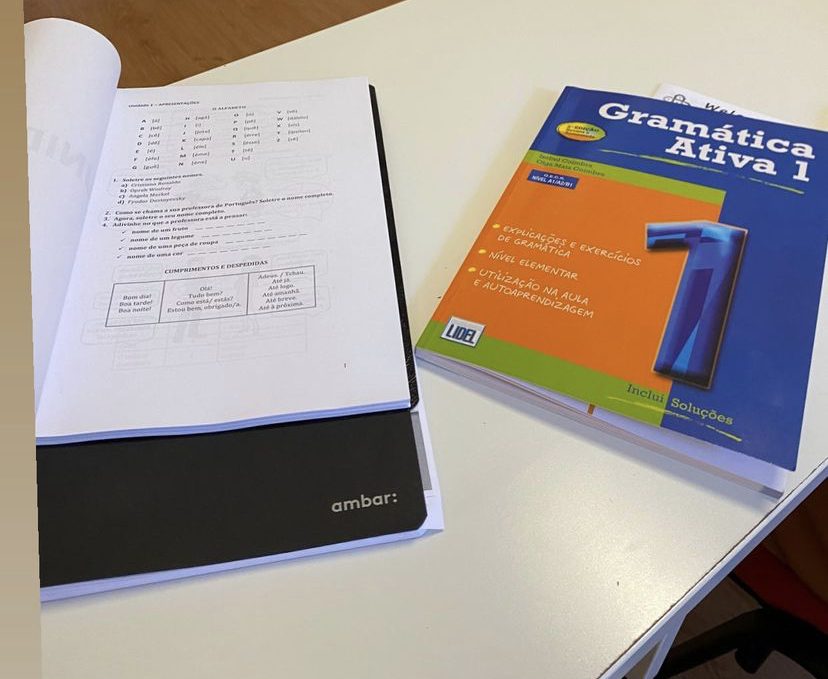
The difficulty comes from the frustration of not being able to speak and “being different.” That aspect is just plain hard, but it will hopefully help motivate our language learning curve.
I have been doing a rigorous learning program with Portuguese Connection School. I do a 4-hour group session and a 1-hour private lesson two times per week. I plan to continue this for several weeks until I am confident and “fluent!”
Because we all want to learn Portuguese and get there as fast as possible, we feel a lot of pressure to do so. But it hasn’t been anything very difficult. In fact, often, when I try to speak in Portuguese, the person I’m speaking to just tells me to speak in English. Haha. So don’t be worried about being able to communicate.
Overall, the adjustment to life in Portugal is going smoothly. If you have more questions or need more tips for your move to Portugal, let me know in the comments! I’m happy to share our journey as we go!
Adeus!
CLICK ON THE MAP BELOW FOR MORE TIPS ON PORTUGAL
[show-map id=’19’]
Book a flight for your family on Booking.com, Skyscanner, Kiwi.com, or Expedia
Find affordable hotels from Booking.com, Expedia, or Vrbo, (we also love Tripadvisor and Hotels.com)
Discover fun family activities from GetYourGuide, Airbnb Experiences, or Viator
Need a car? Rent one on Expedia Rental Cars
Get your family’s travel insurance from World Nomads
Want to have a photo shoot while traveling? Check out flytographer!
Capture your best family memories while traveling with a GoPro, Sony camera, or our favorite drones: DJI FPV, Air, and Mini
Check out other travel necessities from a comprehensive list of all the 7Wayfinders Travel Must-Haves. Click Here!

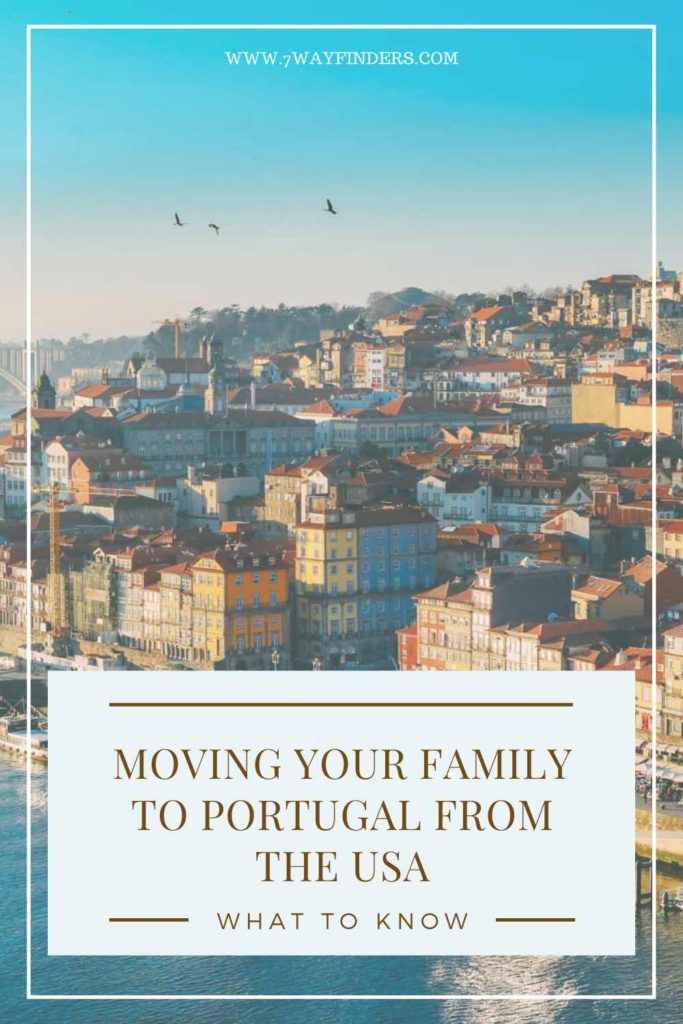

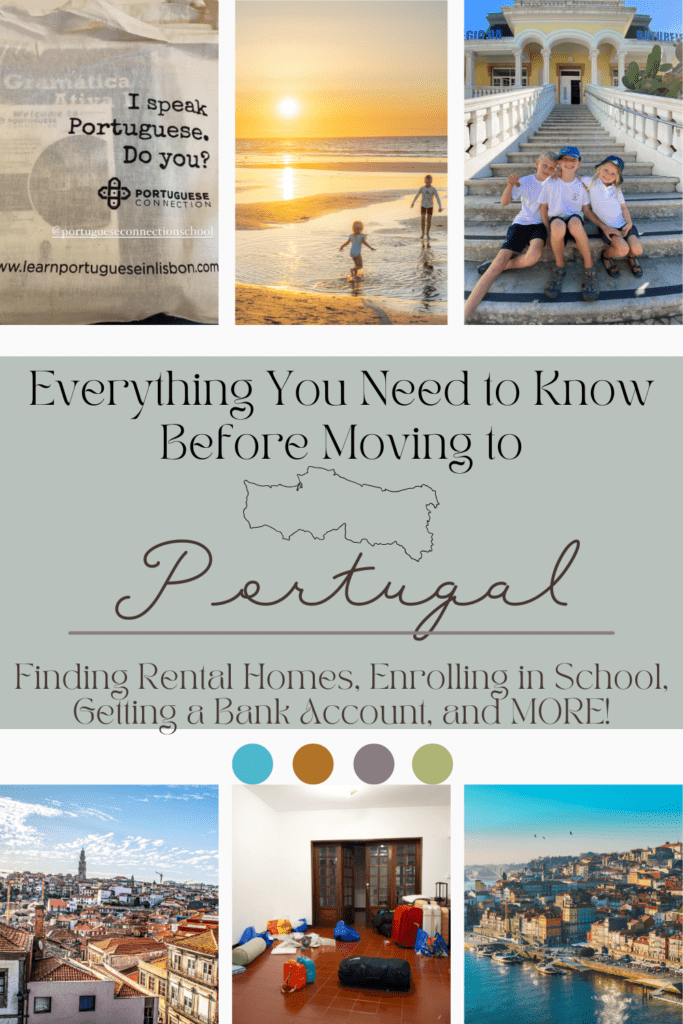
My Experience Learning European Portuguese: Portuguese Connections School in Lisbon, Portugal
Why We Are Uprooting Our Family And Moving To Portugal
Six-Month Update On Moving To Portugal: How Is Everyone Doing?

Hi Leslie! Your posts are incredibly helpful as I navigate moving to Portugal with a young family! Curious if you secured your rental prior to requesting the D7 visa from the US or after it was granted? Also, what city did you all choose and was it mostly based on the home you found?
Thank you Amanda, I am so glad it’s been helpful! Congrats on your move!! We secured a “paper only” rental for our visa (not totally above board, but worked) and then secured a real rental after we arrived. You’ll want to make sure your rental is registered with the Portuguese Tax Authority. This means your landlord pays around 35% of your rental fee in taxes, but it really helps to secure your residence visa!
Hi Leslie! Your posts are incredibly helpful as I navigate moving to Portugal with a young family! Curious if you secured your rental prior to requesting the D7 visa from the US or after it was granted? Also, what city did you all choose and was it mostly based on the home you found?
Thank you Amanda, I am so glad it’s been helpful! Congrats on your move!! We secured a “paper only” rental for our visa (not totally above board, but worked) and then secured a real rental after we arrived. You’ll want to make sure your rental is registered with the Portuguese Tax Authority. This means your landlord pays around 35% of your rental fee in taxes, but it really helps to secure your residence visa!
Hi Leslie! Your posts are incredibly helpful as I navigate moving to Portugal with a young family! Curious if you secured your rental prior to requesting the D7 visa from the US or after it was granted? Also, what city did you all choose and was it mostly based on the home you found?
Thank you Amanda, I am so glad it’s been helpful! Congrats on your move!! We secured a “paper only” rental for our visa (not totally above board, but worked) and then secured a real rental after we arrived. You’ll want to make sure your rental is registered with the Portuguese Tax Authority. This means your landlord pays around 35% of your rental fee in taxes, but it really helps to secure your residence visa!
Hi Leslie! Your posts are incredibly helpful as I navigate moving to Portugal with a young family! Curious if you secured your rental prior to requesting the D7 visa from the US or after it was granted? Also, what city did you all choose and was it mostly based on the home you found?
Thank you Amanda, I am so glad it’s been helpful! Congrats on your move!! We secured a “paper only” rental for our visa (not totally above board, but worked) and then secured a real rental after we arrived. You’ll want to make sure your rental is registered with the Portuguese Tax Authority. This means your landlord pays around 35% of your rental fee in taxes, but it really helps to secure your residence visa!
Thanks for all of your super helpful information. We are considering a move to Portugal from Utah with our three kids. Because we are only planning to stay a year, it seems like a lot of work to furnish an apartment. Did you ever come across places for rent that came furnished?
Also, does the school year follow a similar schedule as Utah (running Aug-May)?
I would not try to furnish an apartment either for just a year! I would look at Airbnbs and other long term rentals and see if you could negotiate with them for a year. Or I would book an Airbnb for a month when you arrive and then find a real estate agent once here. I do think you can find furnished apartments, but we did not look at any.
The school year runs Sept 15 – June 24 this year and in general. So a bit different! Most Europeans go on “holiday” in July and August (for 1-2 months at a time).
Thanks for all of your super helpful information. We are considering a move to Portugal from Utah with our three kids. Because we are only planning to stay a year, it seems like a lot of work to furnish an apartment. Did you ever come across places for rent that came furnished?
Also, does the school year follow a similar schedule as Utah (running Aug-May)?
I would not try to furnish an apartment either for just a year! I would look at Airbnbs and other long term rentals and see if you could negotiate with them for a year. Or I would book an Airbnb for a month when you arrive and then find a real estate agent once here. I do think you can find furnished apartments, but we did not look at any.
The school year runs Sept 15 – June 24 this year and in general. So a bit different! Most Europeans go on “holiday” in July and August (for 1-2 months at a time).
Thanks for all of your super helpful information. We are considering a move to Portugal from Utah with our three kids. Because we are only planning to stay a year, it seems like a lot of work to furnish an apartment. Did you ever come across places for rent that came furnished?
Also, does the school year follow a similar schedule as Utah (running Aug-May)?
I would not try to furnish an apartment either for just a year! I would look at Airbnbs and other long term rentals and see if you could negotiate with them for a year. Or I would book an Airbnb for a month when you arrive and then find a real estate agent once here. I do think you can find furnished apartments, but we did not look at any.
The school year runs Sept 15 – June 24 this year and in general. So a bit different! Most Europeans go on “holiday” in July and August (for 1-2 months at a time).
Thanks for all of your super helpful information. We are considering a move to Portugal from Utah with our three kids. Because we are only planning to stay a year, it seems like a lot of work to furnish an apartment. Did you ever come across places for rent that came furnished?
Also, does the school year follow a similar schedule as Utah (running Aug-May)?
I would not try to furnish an apartment either for just a year! I would look at Airbnbs and other long term rentals and see if you could negotiate with them for a year. Or I would book an Airbnb for a month when you arrive and then find a real estate agent once here. I do think you can find furnished apartments, but we did not look at any.
The school year runs Sept 15 – June 24 this year and in general. So a bit different! Most Europeans go on “holiday” in July and August (for 1-2 months at a time).